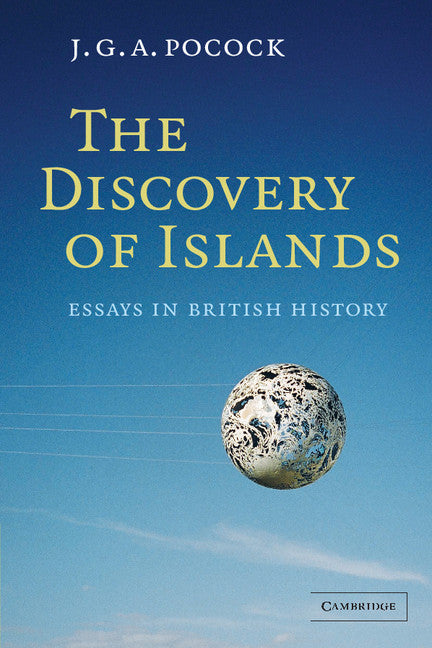Freshly Printed - allow 8 days lead
Couldn't load pickup availability
The Discovery of Islands
Linked essays presenting British history as oceanic and global, rather than simply history.
J. G. A. Pocock (Author)
9780521616454, Cambridge University Press
Paperback, published 8 September 2005
358 pages
22.8 x 15.2 x 2.8 cm, 0.572 kg
"This collection of essays will prove a valuable resource... (A)n engaging and thought provoking contribution to a growing body of work concerned with rethinking the meaning of British history"
Todd Webb, Canadian Journal of History
The Discovery of Islands consists of a series of linked essays in British history, written by one of the world's leading historians of political thought and published over the past three decades. Its purpose is to present British history as that of several nations interacting with - and sometimes seceding from - an imperial state. The commentary presents this history as that of an archipelago, expanding across oceans to the Antipodes. Both New Zealand history and the author's New Zealand heritage inform this vision, presenting British history as oceanic and global, complementing (and occasionally criticising) the presentation of that history as European. Professor Pocock's interpretation of British history has been hugely influential in recent years, making The Discovery of Islands a resource of immense value for historians of Britain and the world.
Preface and acknowledgements
Part I. The Field Proposed: 1. The Antipodean perception
2. British history: a plea for a new subject
Part II. The Three Kingdoms and the English Problem: 3. The field enlarged: an introduction
4. Two kingdoms and three histories? Political thought in British contexts
5. The Atlantic archipelago and the War of the Three Kingdoms
6. The third kingdom in its history
Part III. Empire and Rebellion in the First Age of Union: 7. Archipelago, Europe and Atlantic after 1688
8. The significance of 1688: some reflections on Whig history
9. Empire, state and confederation: the war of American independence as a crisis in multiple monarchy
10. The Union of 1801 in British history
Part IV. New Zealand in the Strange Multiplicity: 11. The neo-Britains and the three empires
12. Tangata whenua and Enlightenment anthropology
13. Law, sovereignty and history in a divided culture: the case of New Zealand and the Treaty of Waitangi
Part V. Britain, Europe and Post-Modern History: 14. Sovereignty and history in the late twentieth century
15. Deconstructing Europe
16. The politics of the new British history
17. Conclusion: history, sovereignty, identity
Bibliographies
Index.
Subject Areas: History of ideas [JFCX], British & Irish history [HBJD1], General & world history [HBG]


